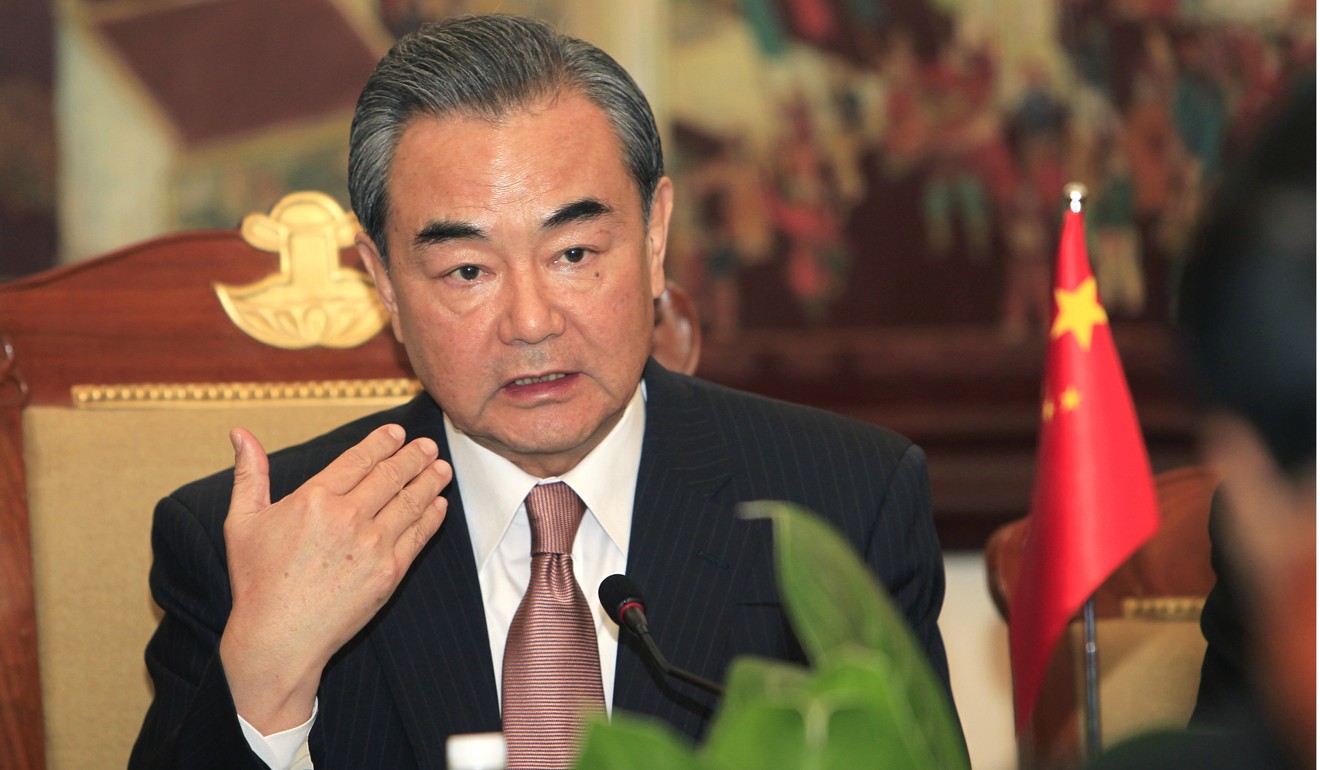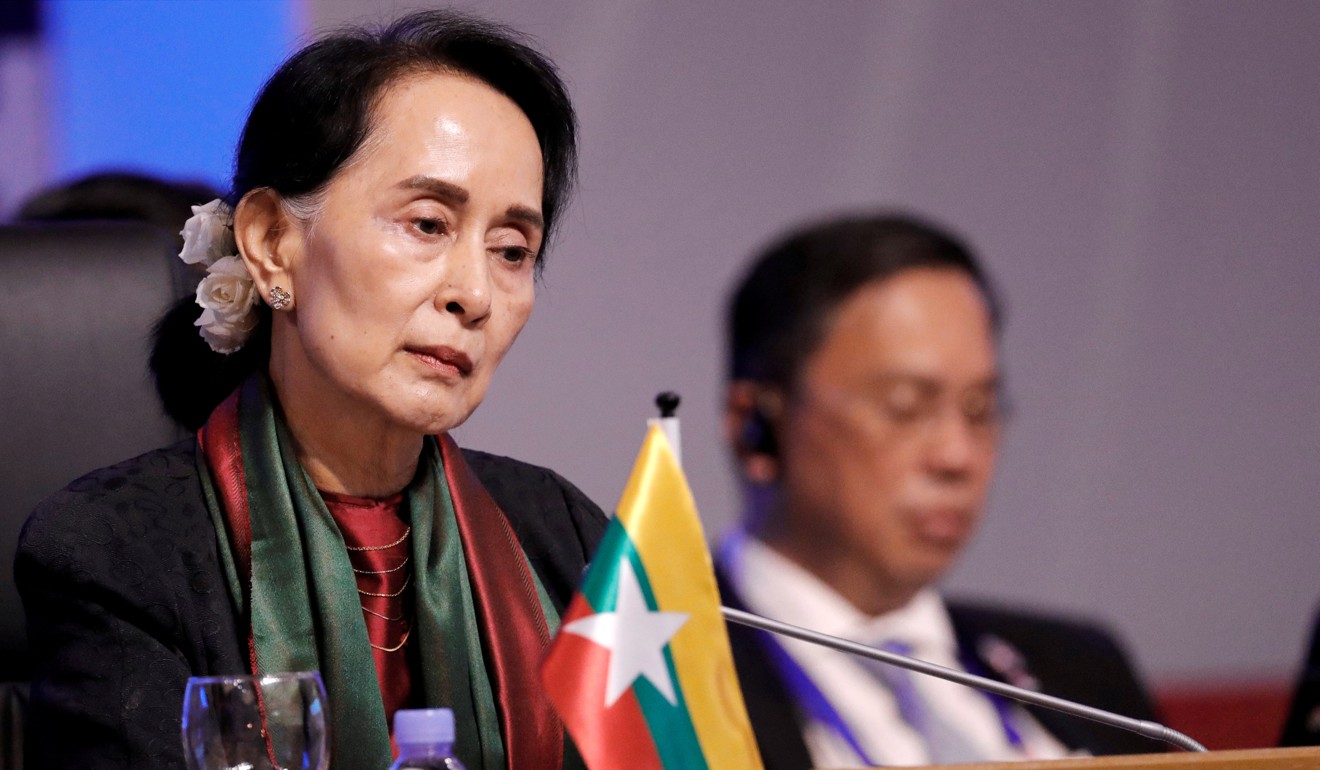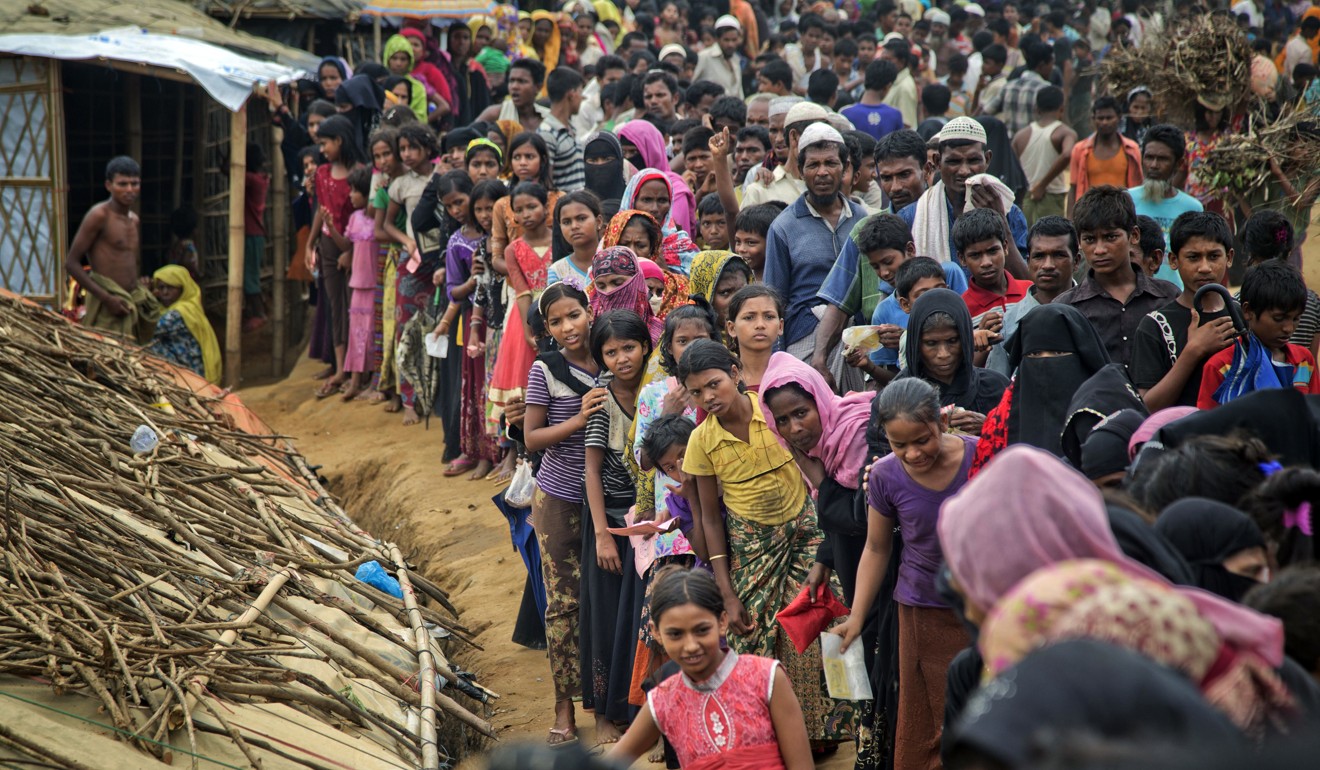
China’s foreign minister to visit Bangladesh, Myanmar to mediate in Rohingya refugee crisis
Wang Yi will also seek to bolster Beijing’s influence in region, which is central to its belt and road trade plan
China’s Foreign Minister Wang Yi will head to Myanmar and Bangladesh this weekend in a bid to shore up Beijing’s influence in the region and mediate in the deepening Rohingya refugee crisis.
The visit comes amid mounting international criticism of Myanmar’s democracy icon Aung San Suu Kyi who has failed to resolve the humanitarian crisis, which has seen more than 600,000 Rohingya Muslims flee Myanmar’s Buddhist-majority Rakhine state to Bangladesh since late August.

Despite Beijing’s opposition, the United Nations General Assembly’s human rights committee on Thursday endorsed a resolution by an overwhelming 135 votes to 10 calling on Myanmar’s authorities to end military operations against the Rohingya.
The resolution, which was also opposed by Russia, Vietnam, the Philippines, Laos, Cambodia and Zimbabwe, also urged the government under the de facto leader Suu Kyi to ensure the voluntary return of all refugees and grant full citizenship rights to the Rohingya.
Beijing has emerged as the top supporter of the embattled Suu Kyi, who has so far rejected accusations of rights abuses in the protracted crisis.

China is behind a US$7.3 billion deep-water port in Rakhine, which plays a pivotal role in Beijing’s belt and road trade initiative, and a US$2.45 billion oil and gas pipeline project that went into operation in April, linking the remote coast of Rakhine to southwestern China’s Yunnan province, 770km away.
On Friday, State Grid Corporation of China launched a power transmission line and a substation project in Shwebo in Myanmar’s northwestern Sagain region, and Myanmar has also bought FC-1 Xiaolong multi-role combat aircraft from China.
Foreign ministry spokesman Geng Shuang said on Thursday that Wang would go to Bangladesh first and then Myanmar where he would meet his counterparts and exchange views on bilateral ties and issues of mutual regional concern.

In a joint international effort to pile pressure on Myanmar, foreign ministers from Germany, Sweden and Japan, along with European Union foreign affairs chief Federica Mogherini will also visit the Bangladeshi capital Dhaka this weekend to mediate in the crisis.
Wang will also attend a two-day meeting of Asian and European foreign ministers in the Myanmar capital Naypyidaw, starting on Monday, which is likely to be overshadowed by the Rohingya issue, according to the Dhaka-based Bangla Tribune.
Diplomatic pundits said Beijing had taken an unusually high profile in backing Suu Kyi on the Rohingya issue after the Nobel Peace Prize laureate faced widespread condemnation over the treatment of about 1.1 million Rohingya Muslims.
China has voiced its support for what it calls the Myanmar government’s efforts to protect stability, and repeatedly resisted stronger UN involvement in addressing the crisis. In March, Beijing blocked a UN Security Council statement on the Rohingya issue.
“As a major regional power bordering resource-rich Myanmar, China apparently has a lot of geopolitical and economic interests in the country, including in Myanmar’s restive Rakhine state, which has been engulfed by the refugee crisis,” Du Jifeng, a Southeast Asian affairs expert at the Chinese Academy of Social Sciences, said.
China, which provided unwavering support for Myanmar’s military junta over two decades, has also invested extensively in the nascent democracy in a bid to compete for influence with the United States and other Western powers.
“However, without Beijing’s backing, diplomatic efforts to pressure Suu Kyi are unlikely to yield any results,” Du said. Instead, the US and European countries were likely to take unilateral action against Myanmar.
Wang’s trip to Myanmar, which follows US Secretary of State Rex Tillerson’s five-hour visit on Wednesday, was also clearly aimed at shoring up Beijing’s position in Myanmar to counter Washington’s influence, Du said.

